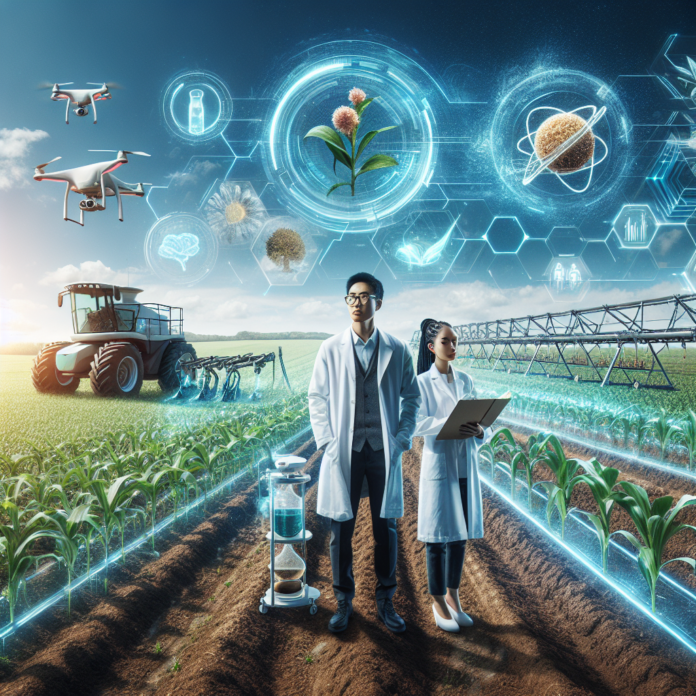Future of Agriculture Relies on Science
The Future of Agriculture: A Scientific Approach
As we look toward the future, the evolution of agriculture is increasingly intertwined with advancements in science and technology. The challenges of feeding a growing global population, estimated to reach nearly 10 billion by 2050, demand innovative solutions. Traditional farming methods alone may not suffice to ensure food security, protect the environment, and promote sustainable practices.
Innovative Technologies Shaping Agriculture
Recent developments in agricultural science are revolutionizing the way we grow food. Precision agriculture utilizes data analytics and satellite imagery to optimize crop yields while minimizing resource usage. Drones equipped with sensors can monitor crop health, enabling farmers to make informed decisions about irrigation, fertilization, and pest control. This data-driven approach not only enhances productivity but also promotes sustainability by reducing waste and environmental impact.
Biotechnology and Genomics
Biotechnology, particularly genetic engineering, plays a pivotal role in the future of agriculture. Scientists are developing genetically modified organisms (GMOs) that are resistant to pests, diseases, and adverse environmental conditions. These innovations can lead to higher yields and reduced reliance on chemical pesticides. Additionally, advancements in genomics allow researchers to identify and manipulate specific traits in crops, paving the way for varieties that are more nutritious and resilient to climate change.
Soil Health and Sustainable Practices
Maintaining soil health is crucial for sustainable agriculture. Scientific research has shown that practices such as cover cropping, crop rotation, and reduced tillage can enhance soil biodiversity and fertility. These methods not only improve yields but also sequester carbon, mitigating climate change. Furthermore, regenerative agriculture, which focuses on restoring ecosystems, is gaining traction as a viable solution to the environmental challenges facing modern farming.
The Role of Artificial Intelligence
Artificial intelligence (AI) is emerging as a game-changer in agriculture. By analyzing vast amounts of data, AI can predict weather patterns, optimize planting schedules, and even detect diseases in crops at an early stage. Machine learning algorithms can provide insights that enable farmers to make proactive decisions, ultimately leading to increased efficiency and reduced costs.
Collaboration and Knowledge Sharing
The future of agriculture will also depend on collaboration among scientists, farmers, policymakers, and industry stakeholders. Knowledge sharing platforms and research initiatives can foster innovation and ensure that the latest scientific advancements are accessible to those on the front lines of food production. By working together, we can address the complex challenges facing agriculture and ensure a sustainable future for generations to come.
In conclusion, the future of agriculture is bright, driven by scientific innovation and a commitment to sustainability. By embracing technology and fostering collaboration, we can build a resilient agricultural system capable of meeting the demands of a growing population while safeguarding our planet.


